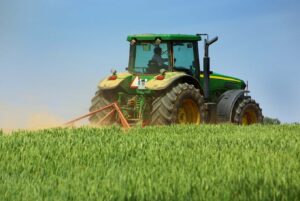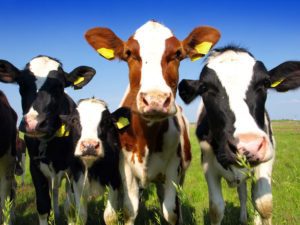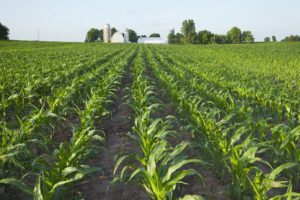Canadian Agricultural Partnership (CAP) Ontario
Receive up to $20K to $1M in Agri-Grants.
IMPORTANT: As of 2023, this program and all funding allocated to it have been changed to the Sustainable Canadian Agricultural Partnership (SCAP). View the SCAP funding page to learn more about the current Canadian agribusiness grant funding programs. The information below is historical info about the Canadian Agricultural Partnership (CAP) Ontario program.
The Canadian Agricultural Partnership (CAP) is a federal-provincial-territorial suite of government funding programs for food producers, processors, organizations, and collaborations. While some programs are available to businesses across Canada, others only provide support to specific provinces, such as CAP Ontario.
The Ontario variant of CAP is split into three streams for (1) Food Processors, (2) Food Producers, and a rebranded (3) Place to Grow: Agri-Food Innovation Initiative stream for Organizations & Collaborations to help overcome agri-industry challenges.
Canadian Agricultural Partnership Ontario
Amount of Funding
Agri Processors
As administered by the Ontario Ministry of Agriculture, Food, and Rural Affairs (OMAFRA), the CAP Ontario program offers cost-sharing assistance to help food and beverage processors reduce the costs and risks of certain technology and innovation-based projects.
Eligible applicants may access up to 25% to 50% of eligible expenses to a maximum $20,000 to $250,000 in grant funding, depending on the project’s focus.
Meat Processors Capacity Improvement Initiative
As administered by the Ontario Ministry of Agriculture, Food, and Rural Affairs (OMAFRA), the Meat Processors Capacity Improvement Initiative stream may fund up to 60% of eligible costs up to a maximum of $150,000 depending on the project’s focus.
Agri Producers
Through the CAP program exclusively for Ontario agri-producers, farm businesses may access government grants to offset a variety of strategic project costs. There are several types of projects supported through the program, including incentives that support business planning, capital investment, and market expansion.
Ontario agricultural producers can access up to $100,000 in CAP funding per eligible project. Companies can commit to up to two funding projects at once
Agri Organizations & Collaborations (Place to Grow: Agri-Food Innovation Initiative)
Up to 50%-75% of eligible project expenses to a maximum $1 million, awarded as an Ontario government grant. The total amount of funding is dependent on the project’s level of innovation.

Canadian Agricultural Partnership Ontario
Eligible Applicants
Agri Processors
Most streams of the Canadian Agricultural Partnership Ontario’s Processors program require applicants to:
- Be an established Ontario-based manufacturer; and
- Be directly involved in transforming agricultural commodities, food, beverage, or agri-based bio-products.
- Have a valid and up-to-date Premises Identification Number;
- Have a Canada Revenue Agency (CRA) business number;
- Maintain a maximum 200 full-time equivalent (FTE) employees at the facility where a project is completed; and
- Have vendor quotes that demonstrate project costs.
Examples of eligible applicants for CAP Ontario Processor grants include:
- Food and beverage products;
- Tobacco-based pharmaceuticals or other bio-products;
- Health or nutrition supplements;
- Ornamentals (flowers, shrubs, sod, etc.); and
- Pet food products.
Applicants ineligible for CAP Ontario Processor grants include:
- Cigarette manufacturers;
- Restaurants and food services, including catering services;
- Companies in the aquaculture sector;
- Retail food services; and
- Packaging material manufacturers.
Meat Processors Capacity Improvement Initiative
Eligible applicants for this stream will be located in Ontario and and established organization. Applicants must also be:
- Licensed under the Safe Food for Canadians Act to slaughter a food animal, or to manufacture, process, treat, preserve, grade, package or label a meat product;
- Or, be a meat plant operated under a license issued by the Food Safety and Quality Act, 2001;
- Be in compliance with all Requirements of Law and agree to remain in compliance with all Requirements of Law for the duration of the project; and
- Be in possession of and able to verify a Canada Revenue Agency Business Number.
Agri Producers
Most streams of the Canadian Agricultural Partnership Ontario’s Producers program require applicants to:
- File business and/or farm income/loss taxes in Ontario;
- Have a valid Farm Business Registration Number (FBRN), unless exempted; and
- Have a Valid Premises Identification (PID) Number.
Agri Organizations & Collaborations (Place to Grow: Agri-Food Innovation Initiative)
Projects can be led by any type of applicant (including non-profits and industry associations) but should be collaborative in nature and combine two or more entities to work on the same project. The program encourages interest from outside the agri-food sector to participate in broad-impact agri-food projects that will drive innovation in advanced manufacturing and data-driven solutions. Vendors and/or suppliers are ineligible partners.

Canadian Agricultural Partnership Ontario
Eligible Activities
Agri Processors
Projects requesting funding through the Canadian Agricultural Partnership Ontario’s Processors program are generally deemed eligible if they fit into one of the program’s main funding support areas. These include (but are not limited to):
- ERP implementation;
- Ingredient and waste monitoring and improvement;
- Productivity improvements (technology, production tools, etc.);
- Projects focused on new product development, testing, and marketing costs;
- Implementation of a business or marketing plan to expand or maintain domestic/international markets; and
- Development of business assessments, audits, or plans by a third party.
Projects ineligible for CAP Ontario Processor funding include:
- Promoting Ontario products over those of another province or territory;
- Supporting normal operating costs associated with carrying out a business;
- Coming into or maintaining legal compliance;
- Supporting basic research; and
- Directly influencing or lobbying any level of government.
Meat Processors Capacity Improvement Initiative
Activities for this stream may be eligible if they are for equipment and associated costs of :
- Increased capacity for cooler/freezer use such as trailers, freezer doors, and air-flow upgrades;
- Waste management processing such as storage and disposal SRM, processing by-products, and composting vessels;
- Animal handling and processing such as holding pen upgrades, knock box upgrades, and stunning equipment;
- Product handling and processing such as hydraulics, scales, and vacuum packaging;
- Related engineering services; and
- Third party training costs for equipment and technology.
Agri Producers
To participate in the Canadian Agricultural Partnership program for Ontario Producers, applicants must propose projects that fit an active stream of funding. Not all incentives are available during each intake, so applicants should carefully consider which stream makes the most sense for their upcoming investments. CAP Ontario’s Producers Program projects generally fall under at least one of four broad areas:
- Business Planning and Improvements
- Equipment Improvements
- Safety and Traceability Improvements
- Farm Improvements
Projects not eligible for support through CAP Ontario’s Producer program include any activities that:
- Promote Ontario products over those of another province or territory;
- Directly influence or lobby government;
- Involve maintaining legal compliance for current business operations; and
- Support experimental or theoretical research.
Agri Organizations & Collaborations (Place to Grow: Agri-Food Innovation Initiative)
Projects proposed through this stream should focus on one of four target areas, including:
- Economic Development: Business analysis, market development, and technology solutions for productivity.
- Environmental Stewardship: Assessment and planning; outreach, education, and advisory services; innovation projects and applied research.
- Labour Supply: Training challenges.
- Protection and Assurance: Skills development and training, applied research, pilot projects, and training; group food safety programs; traceability solutions adoption; information management and sharing; animal health education; plant health education and best practices.

Canadian Agricultural Partnership Ontario
Program Deadline
Agri Processors
To apply for the CAP Ontario Processors program, businesses must develop a comprehensive application and submit it during one of the program’s periodic calls for proposals. Application review takes approximately 60 business days (3 months) from intake deadline. If approved, projects may begin incurring funding-eligible expenses.
The last application intake for processors and other businesses (animal health, commercializers and primary agri-food businesses) closed on September 2, 2021.
Meat Processors Capacity Improvement Initiative
Funding for this stream has been fully committed and is now closed. Future intake periods have yet to be announced.
Agri Producers
To get started with the CAP Ontario Producers program, farm businesses must develop a comprehensive application and submit it during one of the program’s periodic calls for proposals.
This stream will have an open intake from November 15, 2021 until December 6, 2021.
Agri Organizations & Collaborations
Periodic call for proposals throughout the year based on timelines provided by the Ontario Ministry of Agriculture, Food and Rural Affairs (OMAFRA).









